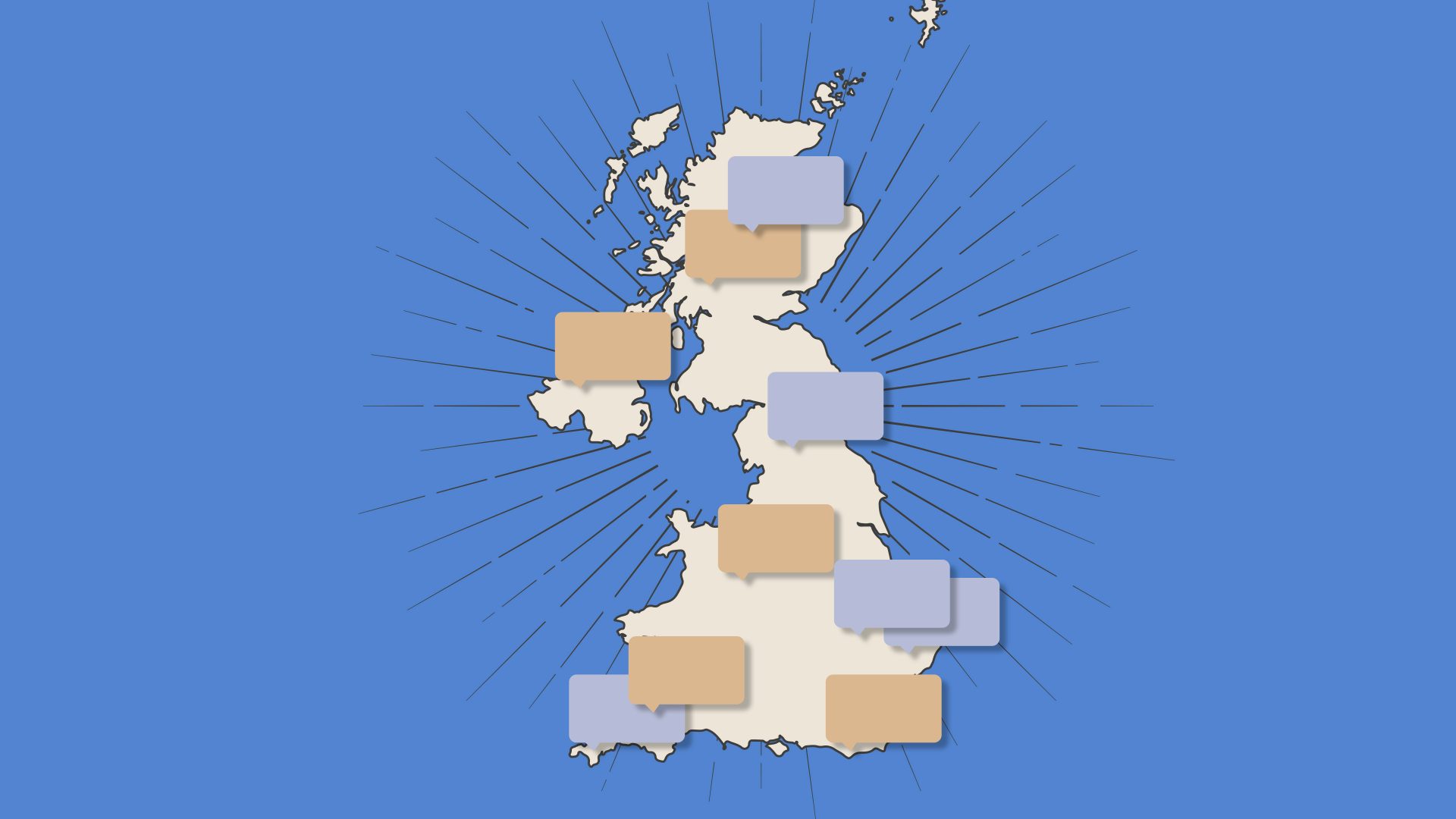In 40 BC, before the invasion of the Romans, the inhabitants of Britain probably all spoke Brittonic Celtic.
Five hundred years later, after the gradual arrival of the Germanic-speaking Anglo-Saxons from the European mainland, the encroachment of their Germanic dialects led to Brittonic gradually being pushed back towards the west of Britain. By 600 AD the situation of Brittonic had become rather insecure, though it was still the dominant language in the highlands of the western and northern areas of England, as well as in most of Scotland apart from an Anglo-Saxon enclave in the south-east.
The Anglo-Saxons (or English, as we can now call them) were mostly still living in independent kingdoms cut off from one another by geographical
barriers, and by often hostile British Celtic speakers. But it is clear that in
many areas the two ethnolinguistic groups did live together with, or alongside, one another for very many decades, often peacefully.
However, the peacefulness of their coexistence should not be overestimated. We know that the Anglo-Saxons often enslaved Britons: the Old English word wealh or walh meant “foreigner, Briton” and “slave”. There was certainly military conflict between the two groups, not least during the particularly turbulent second half of the 5th century, when the semi-mythical Romano-British figure Arthur is said to have been active. Some reports suggest that the last British Celtic military victory over the English was as late as 655 AD.
Eventually the originally single contiguous Brittonic-speaking area became divided up into three regions: the Lake District and neighbouring areas; Wales; and Cornwall and Devon. The varieties of Brittonic spoken in these three zones were cut off from one another, and gradually diverged from each other linguistically.
By 700 AD, Brittonic Celtic remained dominant in only two major areas of England: the far south-west, and northern Lancashire and Cumbria, stretching up into south-western Scotland, where the Brittonic kingdom of Rheged, perhaps centred on what is now Galloway, was situated. Archaeological remains have suggested that the site of Gatehouse of Fleet in
modern Kirkcudbrightshire, in Dumfries and Galloway, might have been the location of the administrative centre of Rheged.
There also appears to have been a Brittonic-controlled enclave for some time on the North Yorkshire Moors. And for several decades there was certainly also a Brittonic kingdom known as Elmet (Welsh Elfed) in what became the West Riding of Yorkshire, also including neighbouring areas of Derbyshire and South Yorkshire. The kingdom of Elmet was focused on forested areas along and around the valleys of the River Aire and the River Wharfe, with the main settlement perhaps being located on the site of modern Barwick-in-Elmet, which is situated between Leeds and York.
The overall picture, though, was of the Britonnic speakers in Cumbria and Rheged being cut off from those in northern Wales by the English in Lancashire and Cheshire; and with the Romano-Celts in Devon and Cornwall
being separated from those in southern Wales by the Bristol Channel and the
Old English speakers of Somerset and Gloucestershire.
These days it is usual to refer to the early mediaeval Brittonic of Devon and
Cornwall as Cornish; the Brittonic of north-western England and south-western Scotland as Cumbric; and the Brittonic of Wales, of course, as Welsh.
CAMBRIAN
The words Cumbric and Cumbria have the same Brittonic-Celtic origin as Cymru, the Welsh word for Wales, which comes from Ancient Celtic kombrogi “fellow countrymen”. The term Cambrian is a Latinised version of the same form and refers to the geological period associated with ancient rocks which were first investigated in Wales.




